
The goal of the Shaping our Future by Leading Together: Families, Schools and Communities conference in Chicago on June 22 to 24 is to expose its participants to successful community engagement strategies. “Parents, families, school counselors, teachers, principals and other community-based partners working collaboratively can improve schooling and student achievement,” according to S. Kwesi Rollins, Director of Leadership Programs at the Institute of Educational Leadership (IEL), which is producing the conference. I caught up with Kwesi to find out more about this important work.
How important is family engagement to achieve school-wide success? What are some of the challenges in vulnerable and economically stressed communities?
There is a great deal of research on the importance and relevance of engaged parents and families as part of the formula for student success. Increased awareness of the positive correlations between engaged parents/families and student achievement has led to a number of increased levels of activity at the school building, “community” and district level as well as increased state and federal guidance (and to some extent support) for improving parent/family engagement. Having said that, there are many teachers and school leaders who lack understanding of what constitutes good parent/family engagement practice, and lack exposure to high-impact, evidence based practices. For example, results from the MetLife Survey of the American Teacher in its final two years (released in 2012 & 2013) identified parent and family engagement among the top 3 issues that both teachers and administrators felt least capable of doing well.
Parents and families in vulnerable, economically distressed and historically under-served communities (as well as those who have limited English proficiency) face a number of challenges and barriers to engagement, including lack of access and lack of social capital, and historically poor experiences with their local schools and/or districts. Low wage working parents also have less flexibility in their schedules, and many work several jobs to make ends meet. This reality coupled with a lack of understanding, training and capacity on the part of educators often leads to misunderstandings on all sides.
Despite the aforementioned context, there are many examples of high levels of involvement and engagement in vulnerable and economically stressed communities, the results of good strategy and creativity on the part of those educators. Taking these successful high impact strategies to scale remains a serious challenge and increasingly this is the focus of state and district-led efforts.
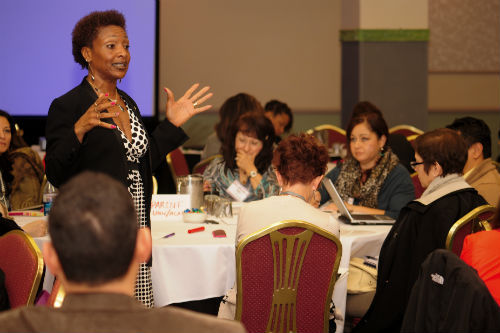
How has technology changed the way parents engage in their children’s schools and what do you see as the pros and cons of this?
There’s a lot of debate about the extent to which technology and social media support the efficacy of family-school partnerships and engagement of parent and families. Anecdotally, the increasingly widespread use of smart phones (and tablets) and access to free or relatively cheap apps has been a game changer. It must be said, however, that the digital divide (in terms of race, income and location in terms of rural communities) remains a key factor that some studies indicate are leading to even greater disparities between well-to-do and disadvantaged schools and districts. This has meant that while there are clearly many technology and social media-based options regarding family engagement, disadvantaged parents and families appear to be less likely to access or deploy them. Educator awareness and readiness are also key factors in effective use of these tools.
One of IEL’s social media-based professional learning and networking initiatives, #PTChat (Parent-Teacher Chat) and a related summer learning experiment, #PTCamp, offer a unique window into the world of social-media and technology focused parent/family engagement efforts. #PTChat is a one hour, weekly, Twitter-based social media professional development conversation that enables parents, family engagement practitioners, teachers, students, principals and others to share their experience and perspective on family engagement and innovative approaches to partnerships. Each week there is a different topic and often one or more experts serve as guest moderators. Past chats (as well as links to resources, photos, videos, etc.) are archived and available on IEL’s website.
#PTcamp was a free, anytime-anywhere six-week virtual summer course/book chat involving 100 educators, parents, and school leaders around the country with several international participants. We read Beyond the Bake Sale: The Essential Guide to Family/school Partnerships as a guide for our conversations on home-school partnerships. With a weekly schedule of assignments, #PTcamp participants used Google Docs, Twitter, Voxer and Apprennet to have ongoing, weeklong conversations on different topics related to the book. Our experience with #PTcamp was hugely successful, opening a range of possibilities for distance and professional e-learning among IEL’s other projects and networks.
#PTChat is just one of literally hundreds of regular chats organized by teachers, administrators, parents, educators and others generally interested in improving aspects of education and student achievement.
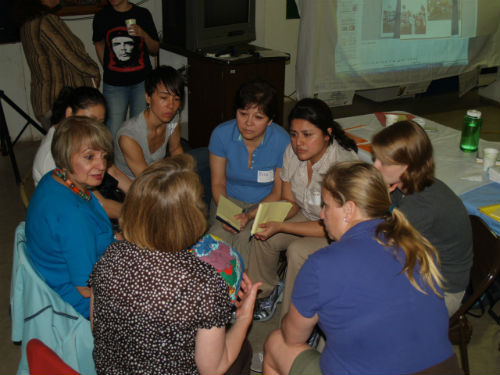
How do you see the role of the parent changing as the digital age continues to evolve?
Used properly, technology and social media have the capacity to even the playing field in terms of exposure and increased access to information and supports for parents of all backgrounds. As I mentioned, the digital divide is a real concern. Assumptions about widespread access by families to the Internet and home computers can lead to over-reliance on these tools by educators in ways that further exacerbate challenges and gaps in learning for disadvantaged families. Nevertheless, increased use of technology, particularly smart phones, gives parents more options to stay connected to schools, teachers and their children, which I believe is a net positive in the parent-child relationship.
Parents and adult caregivers do, however, have a different challenge in that they must navigate access to information for the children in their care to ensure that they are not harmed by premature exposure to developmentally inappropriate information and materials.
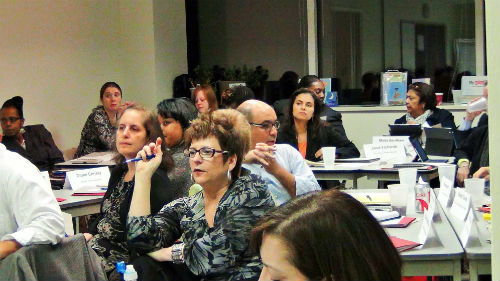
Each school community is different, but when you reflect on the best family engagement models you’ve seen, are there successful strategies that are recurrent? If yes, would you please share some examples?
There are two broad categories of successful engagement practice worth highlighting: consistent activities that build trust between educators and parents/families; and activities linked to learning that boost the capacity of parents/families to both understand and support their children’s learning goals and expectations.
In the area of building trust, home visits are growing dramatically across the country and helping to break down barriers between educators and families. While there are different approaches to home visitation, one of the fastest growing across the country is led by the National Parent Teacher Home Visit Project. This is a more intensive strategy that does require district buy-in, training and a game plan. It is having wonderful results.
Another activity that is growing in popularity (particularly when paired with home visits, as is being done by DC Public Schools) is APTT (Academic Parent Teacher Teams). Developed by one of our conference presenters, Dr. Maria Paredes, APTT is a means of increasing student academic achievement by improving the quality and quantity of parent-teacher communication and interaction.
One of our closing keynote speakers is a DC teacher leader whose 4th graders became the top performing 4th graders in the city for two years in a row after 3 years when their school added APTT to the mix after building trust with home visits. Her school, Stanton Elementary, went from 81st out of 82 to one of the top performing schools in the city. While the training and professional development required to pull this off was supported initially by a foundation grant, DCPS is expanding from 20 schools using this one-two punch and is incorporating this learning across the system.

(All photos are courtesy of S. Kwesi Rollins)
Join me and globally renowned thought leaders including Sir Michael Barber (UK), Dr. Michael Block (U.S.), Dr. Leon Botstein (U.S.), Professor Clay Christensen (U.S.), Dr. Linda Darling-Hammond (U.S.), Dr. MadhavChavan (India), Professor Michael Fullan (Canada), Professor Howard Gardner (U.S.), Professor Andy Hargreaves (U.S.), Professor Yvonne Hellman (The Netherlands), Professor Kristin Helstad (Norway), Jean Hendrickson (U.S.), Professor Rose Hipkins (New Zealand), Professor Cornelia Hoogland (Canada), Honourable Jeff Johnson (Canada), Mme. Chantal Kaufmann (Belgium), Dr. EijaKauppinen (Finland), State Secretary TapioKosunen (Finland), Professor Dominique Lafontaine (Belgium), Professor Hugh Lauder (UK), Lord Ken Macdonald (UK), Professor Geoff Masters (Australia), Professor Barry McGaw (Australia), Shiv Nadar (India), Professor R. Natarajan (India), Dr. Pak Tee Ng (Singapore), Dr. Denise Pope (US), Sridhar Rajagopalan (India), Dr. Diane Ravitch (U.S.), Richard Wilson Riley (U.S.), Sir Ken Robinson (UK), Professor Pasi Sahlberg (Finland), Professor Manabu Sato (Japan), Andreas Schleicher (PISA, OECD), Dr. Anthony Seldon (UK), Dr. David Shaffer (U.S.), Dr. Kirsten Sivesind (Norway), Chancellor Stephen Spahn (U.S.), Yves Theze (LyceeFrancais U.S.), Professor Charles Ungerleider (Canada), Professor Tony Wagner (U.S.), Sir David Watson (UK), Professor Dylan Wiliam (UK), Dr. Mark Wormald (UK), Professor Theo Wubbels (The Netherlands), Professor Michael Young (UK), and Professor Minxuan Zhang (China) as they explore the big picture education questions that all nations face today.
The Global Search for Education Community Page
C. M. Rubin is the author of two widely read online series for which she received a 2011 Upton Sinclair award, “The Global Search for Education” and “How Will We Read?” She is also the author of three bestselling books, including The Real Alice in Wonderland, is the publisher of CMRubinWorld, and is a Disruptor Foundation Fellow.
Follow C. M. Rubin on Twitter: www.twitter.com/@cmrubinworld


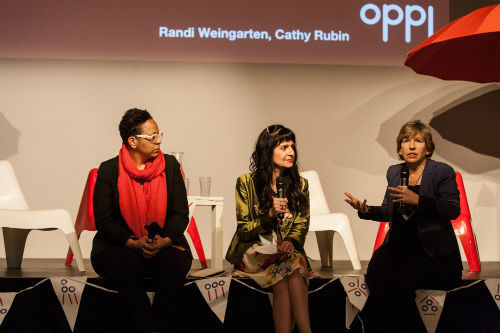
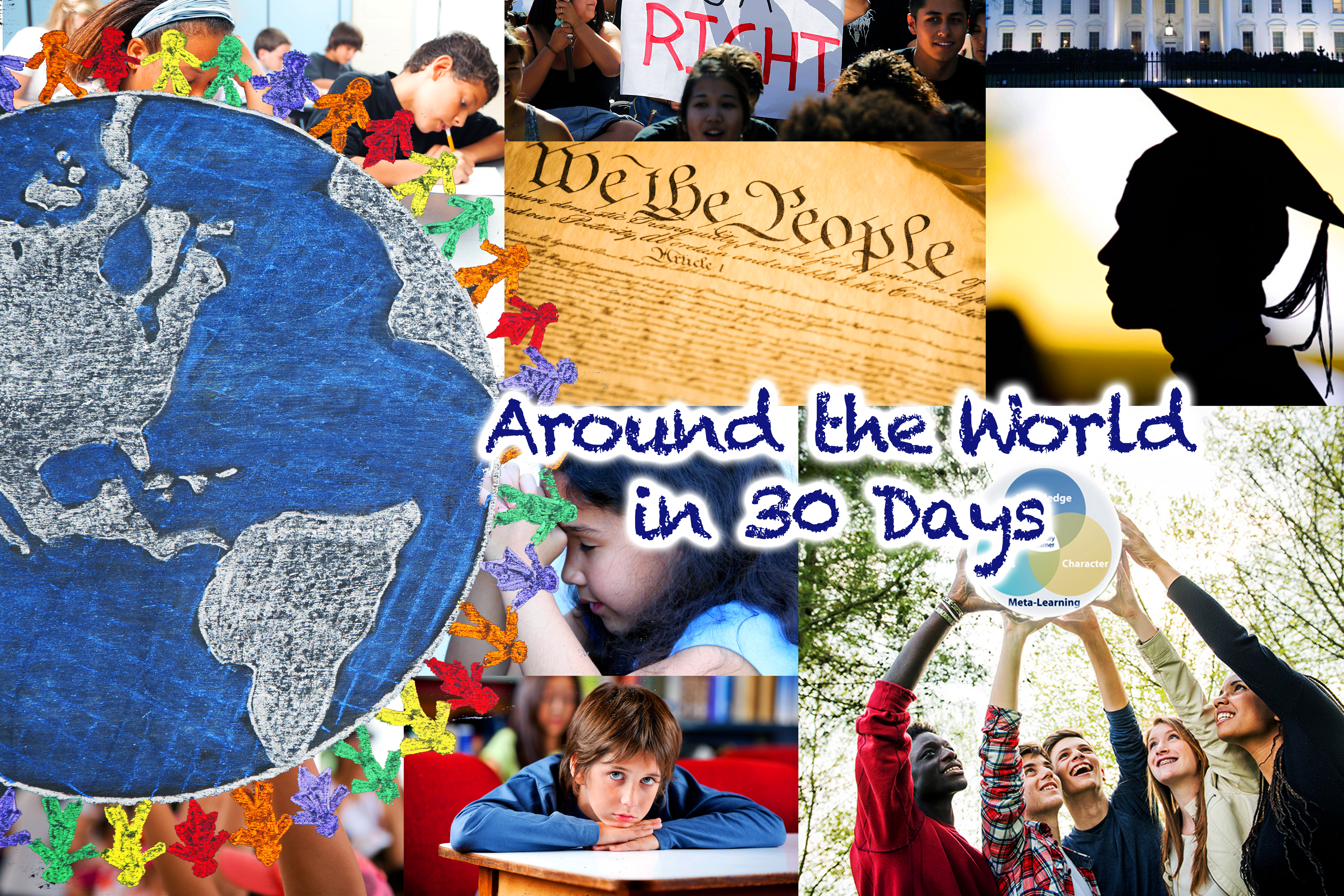


Recent Comments